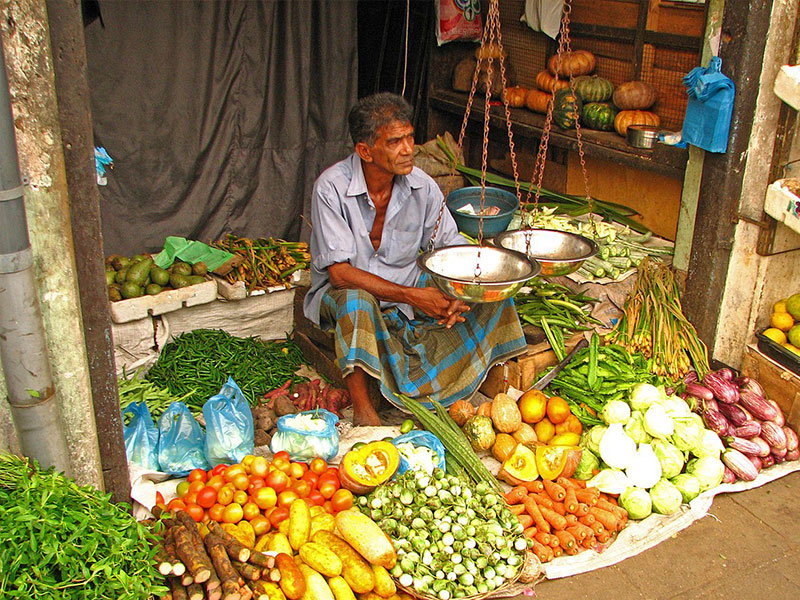Sri Lankan households are feeling the heat of the island nation’s worst economic crisis since independence, grappling with skyrocketing food prices, income cuts, and forced dietary changes to cope. A recent report by the Department of Census and Statistics paints a stark picture of a population struggling to adjust to financial hardship.
Food Costs Lead the Pack: The main culprit driving up household expenses? Food. A whopping 99.1% of households reported increased spending on groceries, revealing the profound impact of inflation on basic necessities.
Coping Mechanisms on the Rise: To weather the storm, 75% of households have tightened their belts, controlling expenses and making adjustments. Dietary changes are another common strategy, with three-quarters admitting to modifying their meals.
Income Takes a Hit: The crisis isn’t sparing incomes either. 60% of earners reported a decrease in at least one source of revenue, while only a meager 3.4% saw an increase. This decline in income directly impacts spending, with 77% of households adjusting their budgets downward to reflect their shrunken wallets.
Doing Nothing Dominates: Faced with reduced income, the most common coping strategy? A surprising, and perhaps telling, “do nothing” approach was reported by 73% of households. Only 6.6% embraced the hustle, actively seeking secondary jobs or additional income sources.
A Nation Adapting: The report concludes that the economic crisis has forced Sri Lankan households to make significant adjustments to their financial lives. While many are struggling, the widespread adoption of coping mechanisms – even if they’re not always proactive—demonstrates a spirit of resilience in the face of adversity.
In a Nutshell:
Skyrocketing food costs are the biggest driver of increased household expenses.
75% of households are making adjustments to cope, including limiting spending and changing diets.
60% of earners saw income decline, leading to budget cuts in 77% of households.
The most common coping strategy to reduced income is doing nothing, highlighting the challenges families face.







